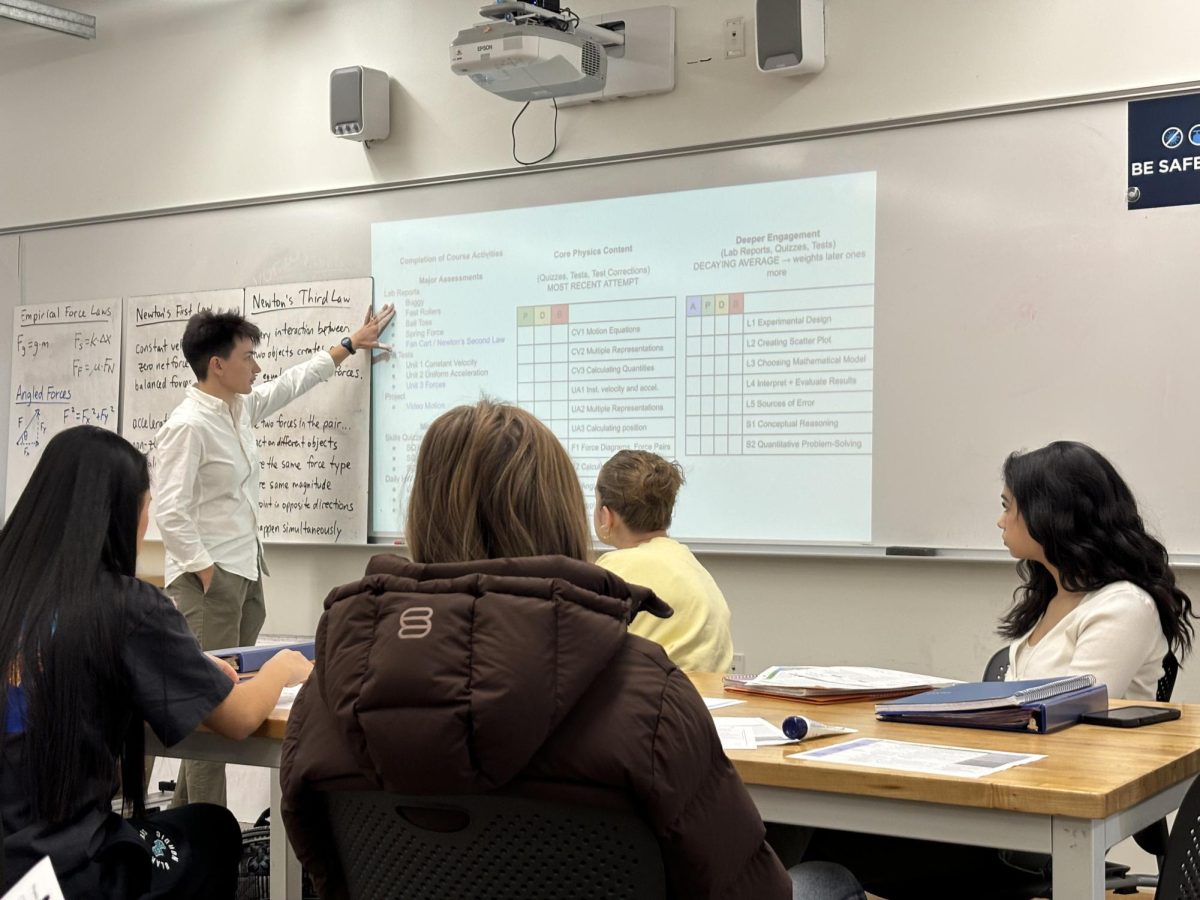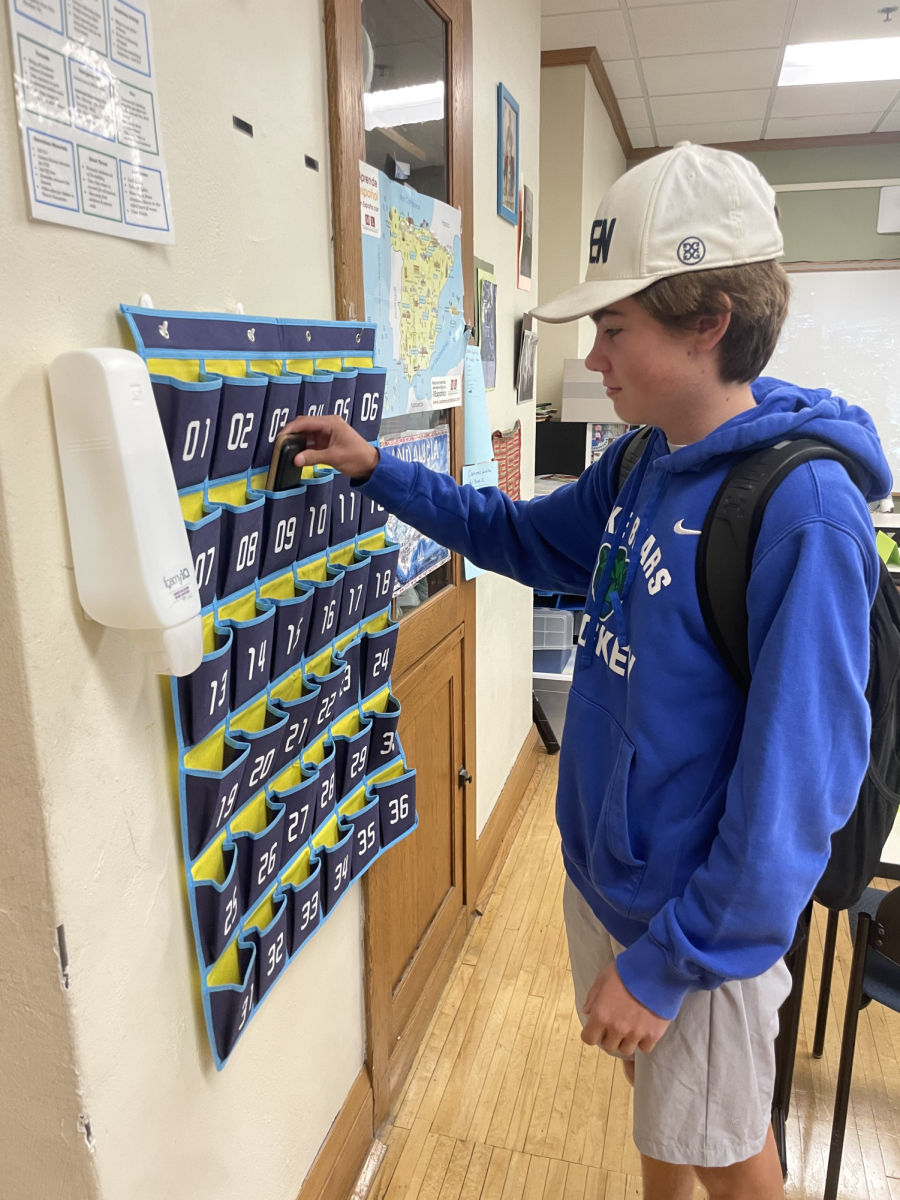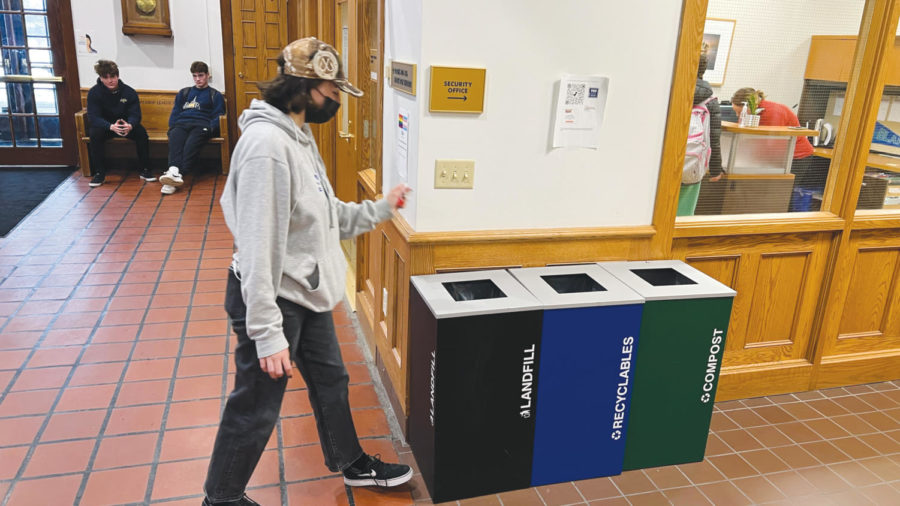The presence of objective-based grading within classrooms has dramatically increased since even the last school year, and in approximately two years, the administration hopes to transition all departments toward this grading method. The system, which is designed to be a more accurate grading measure, however, has instead only increased student confusion and frustration.
Objective-based grading revolves around the principle that grading doesn’t translate to numbers, and therefore, the system temporarily replaces the ABCDF scale with a mastery format. Each class has a list of course-related objectives in which students receive a score based on their proficiency in a specific objective. While the exact wording differs for each class, the scale often goes from “beginning” to “proficient” with the “beginning” score being the lowest and the “proficient” score being the highest. Some classes denote “advanced” as the highest measure of mastery. The amount of scores in each category is then translated into a letter grade based on a course-specific conversion scale.
Although several math and physics classes welcomed this transition for the current school year, many students don’t feel the same. In mid-October, Mercy March ‘26 came up with the idea to start a petition against objective-based grading. “I was joking, kind of, about it when I first came up with it, and then Maggie [Souvignier ‘26] was sitting next to me… she just started creating a doc,” March said. “We just wanted to see how many other people agreed with us about objective-based grading.” After only one day of gathering signatures, March, Souvignier, Sinclair Christie ‘26, and Asha Kelkar ‘26 gathered approximately 150 signatures.
In addition to simply favoring the traditional grading system over the objective-based system, students’ frustration also stems from the lack of clarity on how the system works and the inconsistency of the system’s usage across classes. “It feels more subjective than objective,” March explained. “It’s fine, but it’s hard to transfer words into numbers and a letter grade.”
Sarah Warren, Upper School Assistant Director, addressed this concern, “I think that there is a sense currently that grades are not that subjective and that when we move to this new system.” She continued, “It is helping us see that all grading is subjective. I think this system is far more objective than the A-F system is, it’s just unfamiliar. ”
A few weeks after the petition’s creation, Christie met with Warren to address their concerns. “She talked us through what it’s supposed to be and how it works,” Christie said. “I feel like last year, and this year in math, they didn’t tell us what [objective-based grading] was actually supposed to be. That made it difficult to understand what the goals of the objective learning were. When she explained it [the concept] more, it was definitely clearer what the [administration was] trying to do.”
Despite the clarity Christie received on the system’s functionality, she and March continue to oppose the system. “This is supposed to be a college prep school, and it’s supposed to prepare you for college,” March said. She continued to explain that colleges use the typical ABCDF scale when assessing applicants’ transcripts and use the ABCDF scale to evaluate their students. March cited this discrepancy between Blake’s and most colleges’ grading as a source of her disfavor.
Another source of student frustration is that Canvas, the software used for coursework and grading, isn’t equipped for objective-based grading. Because of this technology constraint, students’ grades are often not well communicated, leaving them in the dark.
“The big thing we want to do is move away from numbers,” Warren said. “If you’re getting told you’re getting [a] beginning [on an objective], which is one out of four, in [Canvas], that’s like a 25%, because one out of four is 25%, but that’s not what [the score actually] means. The numbers are not as meaningful anymore because grades are calculated differently.”
Warren and other administrators are considering additional or more efficient ways to communicate student progress. “We are still looking at if there are other companies who would work better than Canvas or that could be added to supplement Canvas, or [if] we need our own system.”
“We’re aware that with the mastery format that is not as straightforward for students,” Warren said. “We are talking about whether we need to have additional checks beyond interims. We do not yet have a uniform policy around that, but [that is] something we’ve been talking about.”
Although the objective-based grading system is most prevalent in math courses, “it wasn’t driven by the Math Department,” Warren said. “Math, for a variety of reasons, was pretty enthusiastic early on, and so it was the first department to adopt it in such a holistic way.” This year, many Physics teachers have incorporated objective-based grading into their classes, and unlike the Math Department, the system is very new.
In fact, the administration is trying to let teachers make their own of the system within the guidelines put in place. “Our plan as a school is to move to having some framework where we say, ‘here are the boundaries,’ and then we allow teachers to sort of adapt within those boundaries,” Warren said. For example, teachers need to use four main grading categories instead of five, which the ABCDF system uses, but the labeling and titles of those four categories, however, don’t have to be consistent across classes. As long as a teacher uses four categories of mastery to asses there students, that is sufficient.
The administration is working on incorporating feedback about the system. “[There’s] a pilot group of teachers that are doing [objective-based grading] who meet most Fridays during FLEX just to talk about ‘here’s our experience, here’s what we’re working with,’” Warren said. “Then [Upper School Director Joe Ruggiero] and I meet with the two faculty leaders of that group.”
For students with feedback on objective-based grading, Warren suggested going to Forum meetings and meeting with their representatives.















